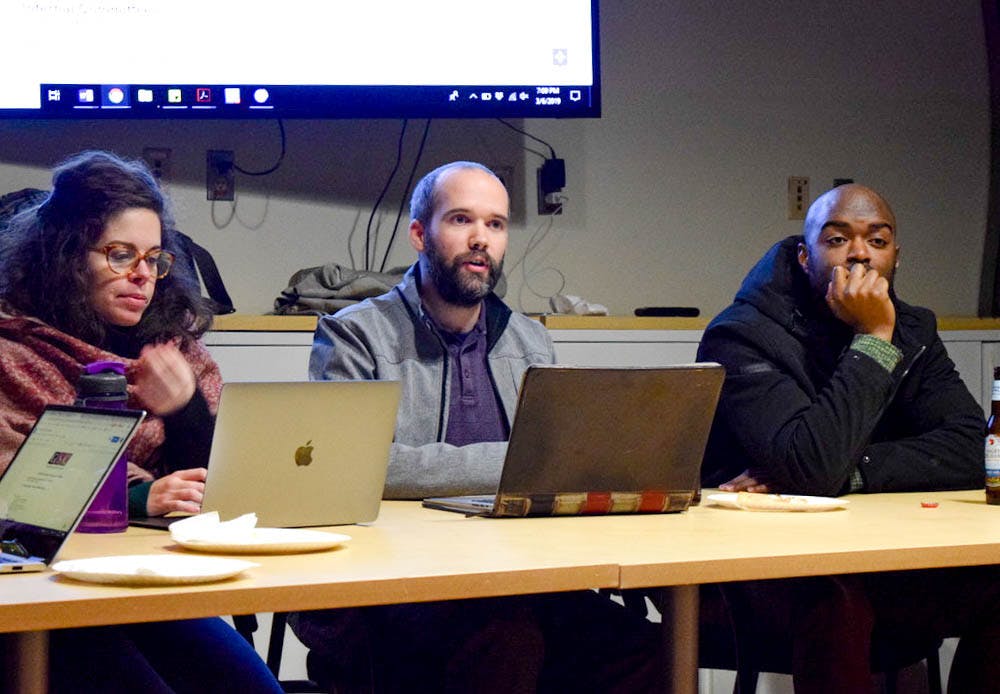In the second meeting of the semester, the Graduate Student Council announced the election for a new Chair of Technology, updated members on the Graduate Student Strategic Initiative and discussed its relationship with the Graduate Student Union and the Medical Student Senate.
The GSC is currently looking to elect a new Chair of Technology. Whoever fills the vacant position will hold the position until December and will have to run for re-election in November, according to the GSC bylaws.
The Council’s Masters’ Advocacy Committee, Finance Committee and Social Committee are also looking to fill vacancies; these positions are filled on an ad hoc basis and joining members do not have to run for re-election.
At the meeting, members of the GSC executive board who lead each of the eight GSSI sections shared new information on their internal discussions and conversations with University administrators.
Kathryn Thompson GS, who is in charge of the GSSI’s housing section, said her group discussed the “affordability, feasibility, quality and safety” of housing for graduate students. The GSC previously discussed challenges that grad students face when finding housing, as The Herald previously reported. “The Graduate School as a whole is really trying to reconcile this issue,” she said, adding that the University had shared a survey with grad students to determine what they “want from their housing.”
D’Ondre Swails GS, vice president of advocacy and head of the GSSI’s diversity, equity and inclusion section, reminded students about a survey assessing the progress of their respective departments’ implementation of the Diversity and Inclusion Action Plans, which the University implemented three years ago.
India Rogers-Shepp GS, who leads the GSSI’s masters’ advocacy section, said her committee felt concerned about the lack of equity in conference funding applications, in that the process favored doctoral students. Her group also discussed tuition remission and the availability of teaching assistant positions for students pursuing a master’s degree.
Graduate Student President Alastair Tulloch GS discussed potential collaboration with the Medical Student Senate. “One of the really brilliant ideas they’ve had is: they have classes for first-year medical students that are natural, life or social sciences focused,” Tulloch said. “They wanted to institute a program where Ph.D. and graduate students present their research for the last ten or fifteen minutes of one of these classes,” he added.
“This is something we would try and roll out in September,” Tulloch said.
“We as an exec-board have also discussed having someone act as a liaison between the GSC and the Graduate Student Union,” Tulloch said. The liaison would increase interactions between the bodies and more directly involve the GSC in the union’s logistics.
During the open floor, Jan Georg Tabor GS asked, “what will the relationship between the Union and the GSC look like?”
In response, Tulloch said that while students in both organizations are technically University employees, they still have different purviews. For instance, GSC covers “the Graduate Student Strategic Initiative, (which) doesn’t fall under the purview of the union.”
He continued to say that though the union and GSC are distinct bodies, “we want to work with them — sometimes the line between our domains can be grey.”





